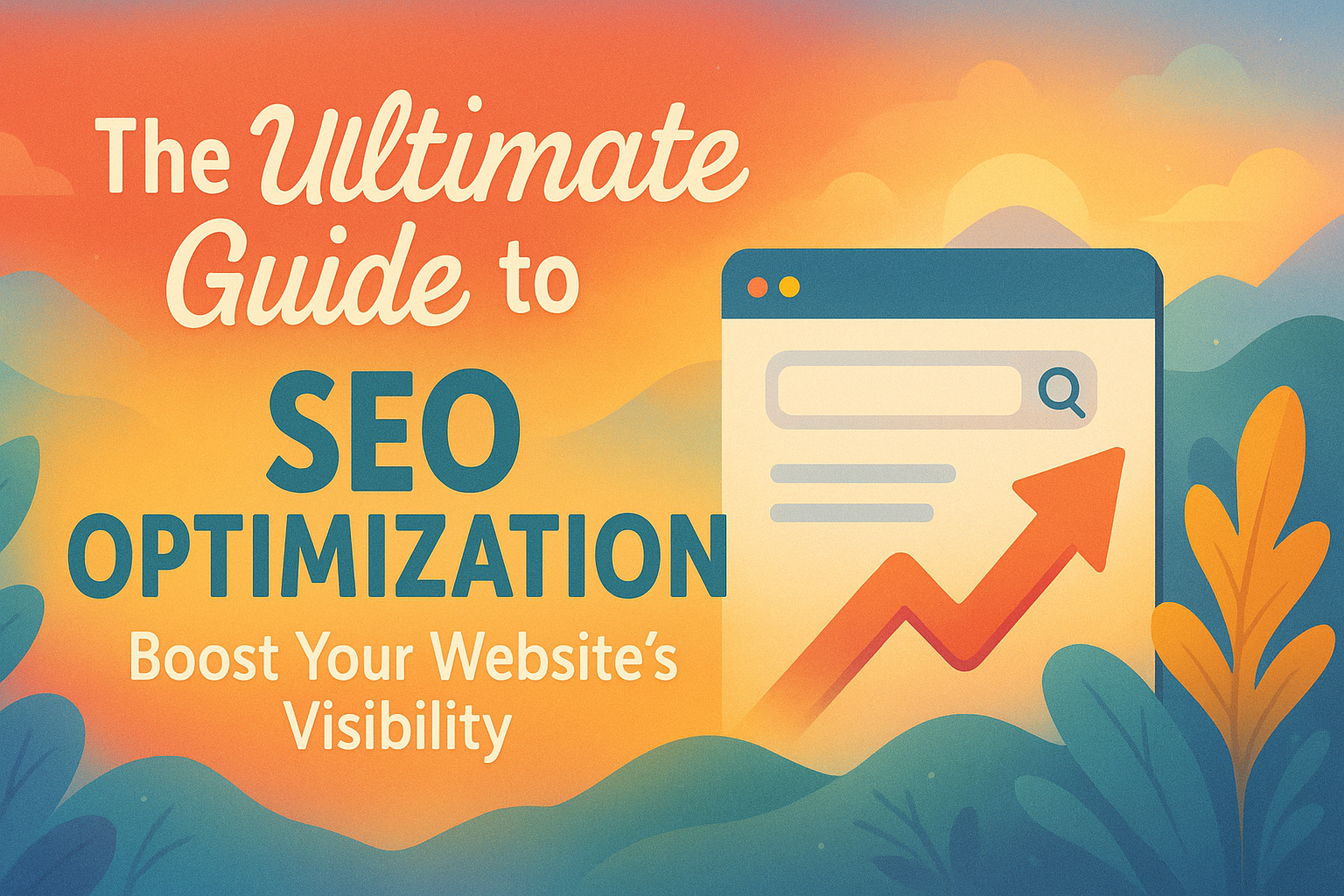In this blog post, we’ll break down what SEO is, why it matters, and how you can start optimizing your website for better rankings and visibility.
What is SEO?
SEO stands for Search Engine Optimization. It’s the process of improving your website so that it ranks higher in search engine results pages (SERPs) for relevant keywords. The higher your website appears, the more likely people are to visit it.
Think of SEO as a way to help search engines understand your content — and help users discover it.
Why is SEO Important?
- Increased Traffic: Higher rankings lead to more clicks.
- Credibility & Trust: Websites on the first page of Google are seen as more trustworthy.
- Better User Experience: SEO encourages faster loading times, mobile-friendliness, and clear navigation.
- Cost-Effective: Unlike paid ads, organic SEO brings long-term, sustainable traffic.
Core Elements of SEO Optimization
1. Keyword Research
Before creating content, you need to know what your audience is searching for. Tools like Google Keyword Planner, Ubersuggest, or Ahrefs can help you identify high-traffic keywords in your niche.
✅ Tip: Focus on long-tail keywords (e.g., “best SEO tools for small business”) – they’re less competitive and more specific.
2. On-Page SEO
On-page SEO involves optimizing individual pages on your site. This includes:
- Title Tags: Keep them under 60 characters and include your main keyword.
- Meta Descriptions: Brief summaries that appear in search results – use keywords and write persuasively.
- Headings (H1, H2, etc.): Structure content with relevant subheadings.
- Content: Create valuable, original content that answers the user’s intent.
- Image Optimization: Use descriptive file names and alt text for images.
3. Technical SEO
Technical SEO ensures your website is easy for search engines to crawl and index.
- Mobile Optimization: Make sure your site looks great on smartphones.
- Fast Loading Speed: Compress images and use clean code.
- Secure Website: Use HTTPS instead of HTTP.
- XML Sitemap & Robots.txt: Help search engines understand your site’s structure.
4. Off-Page SEO
Off-page SEO builds your site’s authority through backlinks — links from other reputable websites.
- Guest blogging
- Social media shares
- Influencer mentions
- Directory listings
The more high-quality backlinks you earn, the more credible your site appears to search engines.
5. Local SEO (For Local Businesses)
If you serve a local audience, local SEO is essential.
- Google Business Profile: Set it up and keep it updated.
- Local Keywords: Use terms like “plumber in Chicago.”
- Customer Reviews: Encourage satisfied clients to leave reviews on Google and other platforms.
SEO is Not a One-Time Task
SEO is an ongoing process. Algorithms change, competition grows, and user behavior evolves. Regularly update your content, monitor your site’s performance with tools like Google Analytics and Google Search Console, and continue building quality backlinks.
Final Thoughts
SEO optimization isn’t about tricking Google — it’s about creating a site that’s truly helpful and relevant for your audience. Whether you’re a blogger, business owner, or marketer, a solid SEO strategy can dramatically increase your reach and impact online.
If you haven’t started optimizing your site yet, now is the time. A few thoughtful changes today can lead to big results tomorrow.
Need help with SEO?
Whether you’re starting from scratch or want to improve your current rankings, consider working with an SEO expert to guide you step by step.
